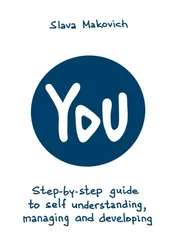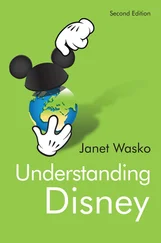Some people, anxious that the poor at last would have rights, hoped for a revolution such as had happened in the Russian Empire. The colonised peoples of our Empire were growing restive too. But Britain, unlike Germany, was never poised on the edge of revolution. Despite a General Strike and the Depression that overtook the capitalist countries in the 1930s, many parts of the country were getting more prosperous, particularly from the late 1920s onwards. Between the wars, millions of people moved for the first time into decent housing, while electricity, roads fit for cars and other public services became widely available. Our politicians argued about whether to fight Hitler although the people seem to have known that war was inevitable and that it would be grim and necessary.
Like you we have our national myths of the Second World War and every Christmas new books are published on the subject and old films re-shown. The chief myth (which is also true) is that in 1940 Nazi Germany controlled all of Europe except those countries where it had allies (Italy and Spain), neutral Switzerland and Sweden, and the Soviet Union with which it had a secret pact. The only country which was unoccupied and ready to oppose Hitler was Britain. In 1940 and early 1941 there were many air battles over the country between the RAF and the Luftwaffe; dozens of cities were bombed, night after night by German bombers. Britain is an island which cannot and could not produce enough food to feed all her population, so we had to organise huge convoys of merchant ships which steamed across the Atlantic bringing food from the Americas, and often getting destroyed during their long journey. Germany could call on all the food and military resources of the continent, so there was absolutely no reason why Hitler's armies should not eventually invade and destroy Britain. When Churchill told the British that the fight was going to be difficult, almost impossible, he was not exaggerating. For many bleak months everyone was preparing for invasion while finding ways to prevent soldiers landing on our shores, in a vast defensive operation that could not go beyond these shores.
The Germans were drawing up in battle order on the coasts of France with air power to protect them in their invasion, when Hitler decides to change his strategy and invade the Soviet Union. So, on the one hand, the struggle between Germany and the Soviet Union took the pressure off Britain and probably saved us from invasion. But for months only Britain stood between Germany and its complete domination of the continent, a stand which helped to ensure that the Nazi armies never quite reached Moscow.
British armies also fought in North Africa, in Italy and in Asia, and then later, in 1944, invaded France along with the Americans and Canadians in order to defeat the Germans from (he west. But it is this story of standing alone, of defence against the odds, which is the story that parents pass on to their children. The battles between German bombers and the small fighter aircraft that the British seemed to be producing out of old cans and scrap metal - the fights in the sky which became known as the Battle of Britain - are the struggles that caught the national imagination.
In Britain far fewer people were killed than in the First World War (about a quarter of a million, of whom some tens of thousands were civilian victims of bombing). But although our losses were only a fraction of yours, there is a striking and puzzling difference between popular perceptions of the War in Britain and Russia. In this country every able-bodied adult was conscripted; women were sent to do war-work; gardens were turned over to vegetables and spare pieces of land were cultivated. We needed food. The miners had to work night and day, so many men were conscripted into the mines instead of the armed forces. We suffered considerable bomb damage, and many people, especially children, were evacuated to safer parts of the country. By the standards of what happened in the rest of Europe, Britain was very fortunate, so my point is not about the scale of suffering but the attitude to civilian and military responsibility. Everybody was affected. It was a people's war.
The Soviet Union had 'veterans' who took part in the actual lighting and who were awarded a place of honour. In Britain soldiers, unless actually disabled, were not practically distinguished from the rest of us. When asked by a Soviet veteran what privileges British veterans were given, I was rather shocked. The British were all veterans and recognised as such, including the young mothers like my own mother.
I have given this brief account of Britain in the Second World War in the form of a myth, because, although war is immeasurably more complicated than any military or diplomatic or social or ideological description, the simplified stories which are told afterwards by each nation are often claimed as the truth. The Red Army at Stalingrad inflicted the crucial defeat on Hitler's army which began the long German retreat, a fact which is acknowledged by all historians. It is true that the Soviet victories are not given much attention among ordinary people in the west. But on the other hand, Russians are just as unaware of what happened before you were invaded. In Russia the history of the Second World War is the history of the Great Patriotic War. Nobody else in Europe would see it quite like that, especially those who had been fighting since 1939. So understanding Britain involves understanding something about our recent history and how it differs from yours.
After the war, in 1945, the world position of Britain altered. We were virtually bankrupt. Our Empire collapsed around us and we reluctantly conceded that we no longer had the right to rule other countries. We joined NATO and became part of the 'American sphere of influence'. The consequences of this I discuss in the last part of the book.
Teaching History Today
This version of our history in which triumph gives way to doubt and debate in the contemporary world has been questioned by some of our politicians. They would prefer to see history used as propaganda, for example to give schoolchildren a new pride in Britain. The problem with a propaganda version of history is that it would be inaccurate, biased, and not good at helping children to think critically about what has happened in the past. Also, many teachers shy away from teaching heroic narratives that seem to them false and even absurd.
Some people argue that we should teach a more critical version of British history that incorporates the histories of the West Indian and Asian communities living here. Lessons should pay attention to the slave trade, to oppression within the British Empire, and to the limitations of former heroic narratives. Others point out that if we want to teach the history of the oppressed and forgotten, we could begin with the poor who have always existed in Britain: the rural labourers, the factory children, the women pushed to the sidelines. (This would be like teaching a history of the serfs in Russian - the forefathers of most of you - and leaving high politics out of the story. Would that be a good idea?)
So what is actually taught now? The Government can suggest suitable content but cannot impose exactly what is taught or textbooks which should be used or interpretations of what happened. British history from mediaeval times onwards, but, as I have said, special emphasis is put on major events in world history during the twentieth century - such as the course of the Russian Revolution and the course of the Second World War. Unlike the situation in Russia, however, different schools choose from among a range of options, and a wide range are available. (Consequently, if you ask British people now about their history, lake note of their age because it will explain their approach to the question.
Читать дальше












